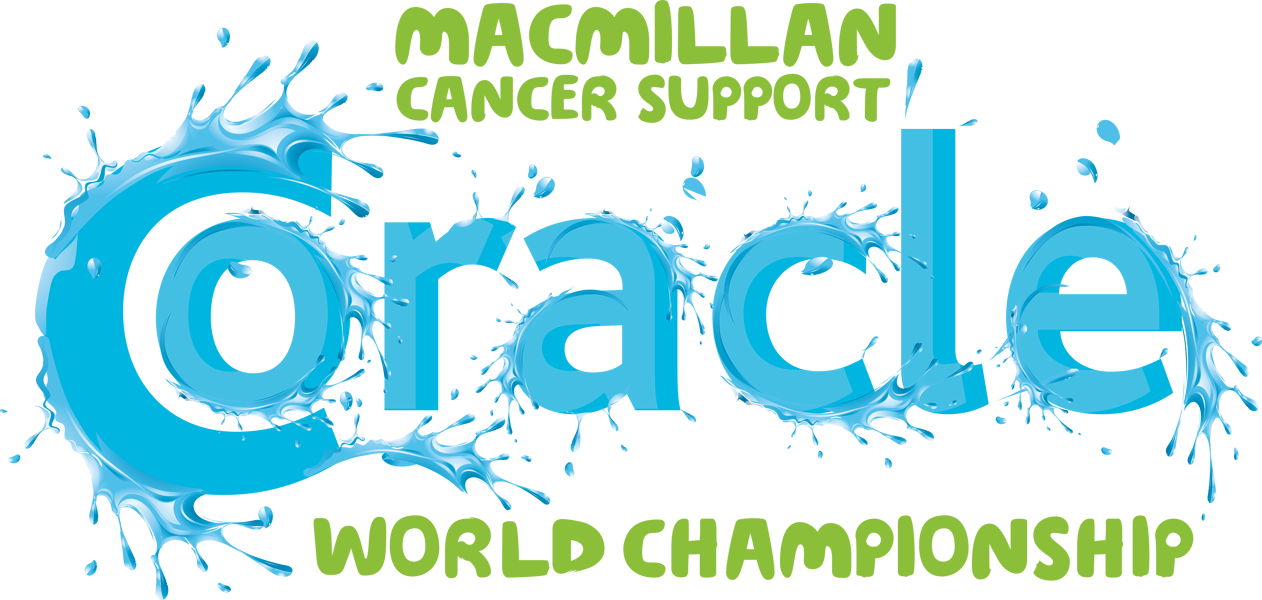Richard Bayliss and the Coracle World Championships
The fact that we have a Coracle Race at all is largely down to Richard Bayliss, from Minsterley, a village a few miles outside Shrewsbury.
It was typical of Richard, with his sense of fun closely coupled to his generosity and determination to help others, that he persuaded a collection of Shrewsbury companies to paddle unstable crafts across the River Severn back in 2007.
Deciding that this was a unique event, the Coracle World Championships, for that is what they are, were born with the intention of a fun day out of the office and nice fat cheque for Macmillan Cancer Support. To date this event has raised over £380,000 for Macmillan in Shropshire, with countless competitors paddling, capsizing and drifting to glory to uphold the ideals that Richard set in place.
Sadly Richard himself died of cancer in 2015, cruelly cut down by the disease he fought against, but leaving us to continue the fight, to continue to support Macmillan and give people affected by cancer the best chance and standard of care possible.
Thank you for your support: in memory of Richard we will be awarding the Richard Bayliss Cup, which will be presented to the team who raises the most sponsorship from the year's event.
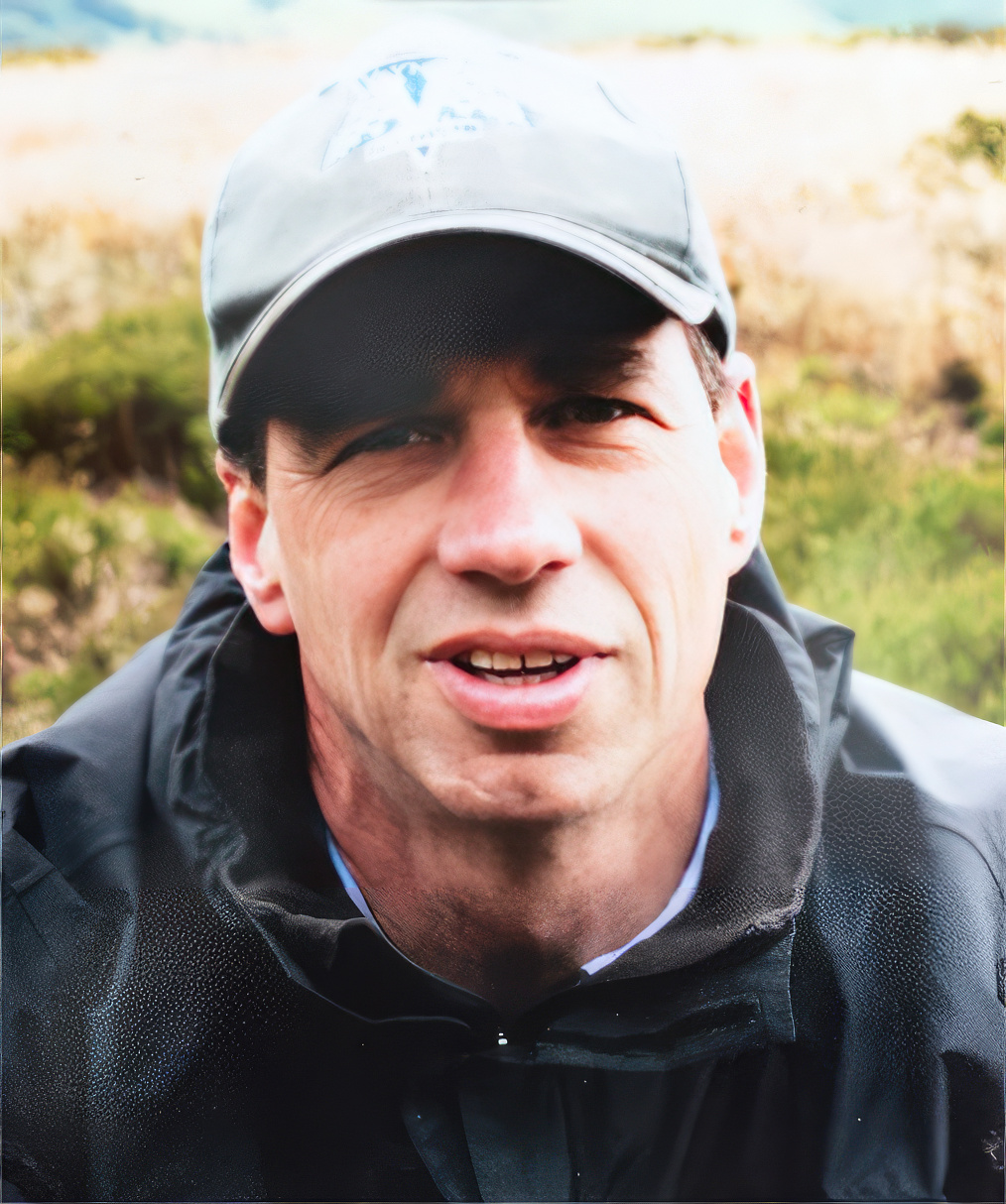
Race History
Race Fundraising Totals
We do not have complete data for all years, and in some years the event was not held.
EVENT Final Fundraising Totals
Highest Team Fundraising Total
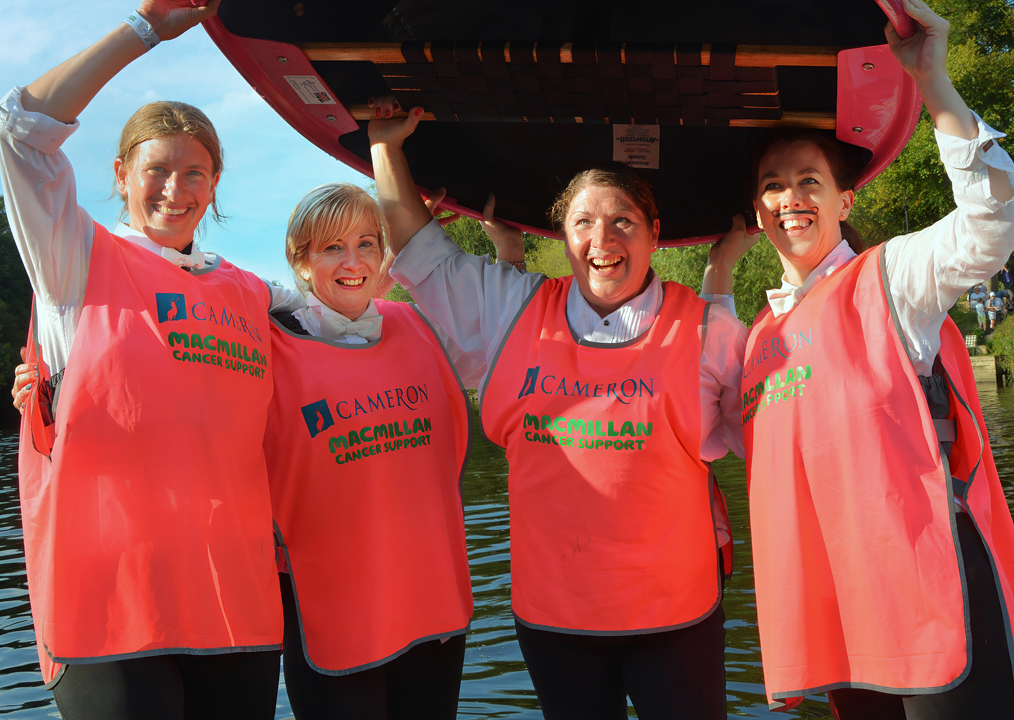
World Records smashed!
Competition in the race is fierce and reaching legendary status, with Team Tit-Tanic (Shropshire Paddlesport) smashing the previous World Record, set in 2022, with a time of 4mins 21secs in 2023. Can you beat that?
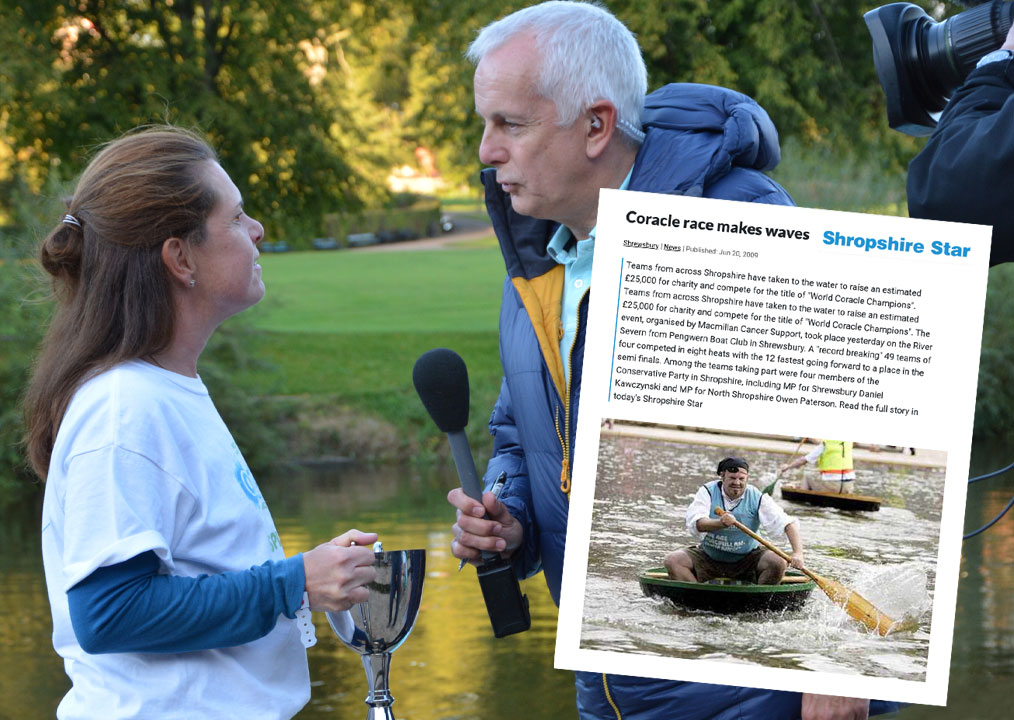
Making news and headlines!
With frequent TV, radio and press coverage, the Coracle World Championships is really well known, and why local businesses support it year on year. Why not get your enterprise noticed, and enter a team this year?
The Coracle Committee and the Macmillan Volunteers
Behind the scenes of the Coracle World Championships Race is the small, but dedicated, team of the Coracle Committee who organise all aspects of the event. Another essential part of Race Day itself are the selfless Macmillan volunteers who, at every race, provide invaluable help in making the day run smoothly!
The Coracle
What is a Coracle?
The coracle is a small, roundish shaped, lightweight boat of the sort traditionally used in Wales but also in parts of Western and South West England, Ireland (particularly the River Boyne), and Scotland (particularly the River Spey); the word is also used of similar boats found in India, Vietnam, Iraq and Tibet.
The word "coracle" comes from the Welsh ‘cwrwgl’, cognate with Irish and Scottish Gaelic currach, and is recorded in English as early as the sixteenth century. Other historical English spellings include corougle, corracle, curricle and coracle.
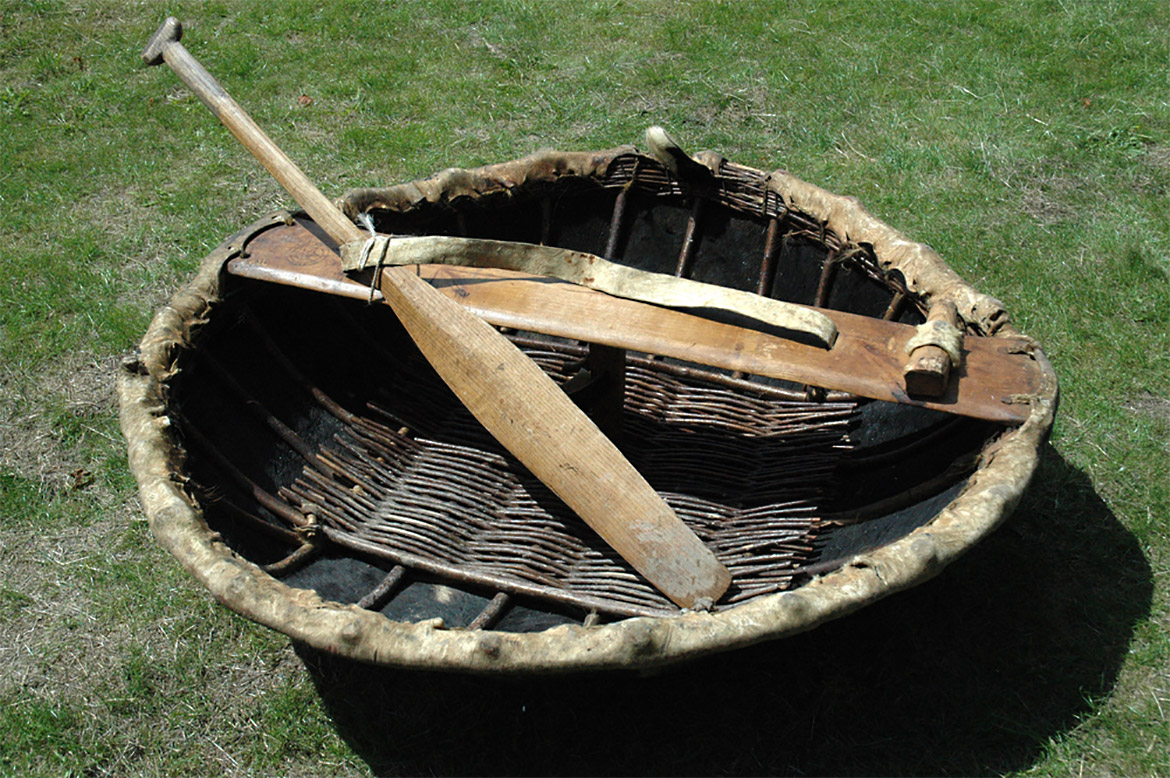
Oval in shape and very similar to half a walnut shell, the structure is made of a framework of split and interwoven willow rods, tied with willow bark. The structure has a keel-less, flat bottom to evenly spread the weight of the boat and its load across the structure and to reduce the required depth of water – often to only a few inches, making it ideal for use on rivers.
Designed for use in the swiftly flowing streams the coracle has been in use in the British Isles for centuries, having been noted by Julius Caesar in his invasion of Britain in the mid first century BC, and used in his campaigns in Spain. Remains interpreted as a possible coracle were found in an Early Bronze Age grave at Barns Farm near Dalgety Bay, and others have been described, from Corbridge and from near North Ferriby.
The coracle is an effective fishing vessel because, when powered by a skilled person, they hardly disturb the water or the fish, and they can be easily manoeuvred with one arm, while the other arm tends to the net (two coracles to a net). The coracle is propelled by means of a broad-bladed paddle, which traditionally varies in design between different rivers. It is used in a sculling action, the blade describing a figure-of-eight pattern in the water. The paddle is used towards the front of the coracle, pulling the boat forward, with the paddler facing in the direction of travel.
For many years until 1979, Shrewsbury coracle maker Fred Davies achieved some notability amongst football fans; he would sit in his coracle during Shrewsbury Town FC home matches at Gay Meadow, and retrieve stray balls from the River Severn. Although Davies died in 1994, his legend is still associated with the club.
Coracles are rarely seen in the modern world, and if you do see one, chances are it is hanging somewhere as a ‘garden feature’. One aspect of the coracle that has never changed over time is people's love and bewilderment for them. For those seeking the elusive coracle, one guaranteed place to see them is every summer on the River Severn in Shrewsbury at ‘The World Coracle Championships’. If you want the honour of having a go in one, then all you have to do is click the link below and enter a team!
